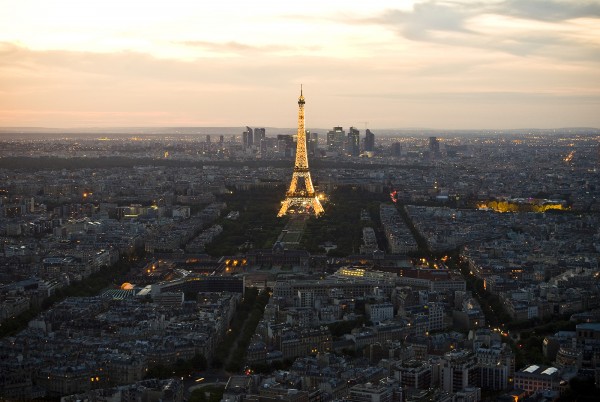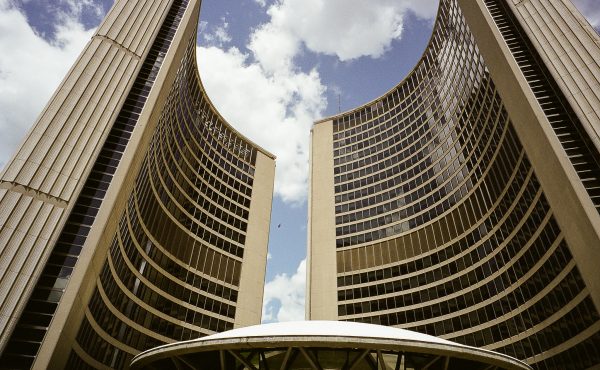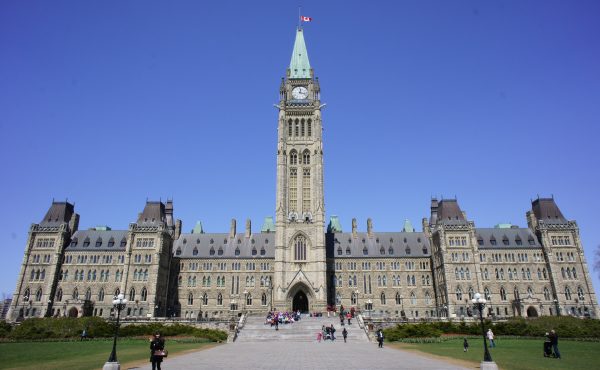
Yesterday’s massive demonstrations — in Paris, as well capitals around the world, including Toronto – offered a vivid reminder that 21st century terrorism is a horror story that plays out in the streets of global cities.
These urban areas provide the networks, anonymity, capital, equipment and targets that terrorist groups require to inflict the shocking violence and mayhem that we witnessed around Paris over the past several days.
Yet such displays of public solidarity have left me feeling strangely conflicted, and somewhat short of energized. Yes, the surging crowds were peaceful and diverse, with broadly reported displays of mutual support across the geo-political minefields of our era. The participants were united in their determination not to cower in the face of the Islamic State’s medieval, metastasizing extremism.
But now what? And what are we to do with the fathomless problem of determining how much free speech is too much free speech, especially in immigrant-receiving cities that seethe with the messy diversity that muddies any debate about lofty liberal principles.
Indeed, this widely tweeted image (thanks to Tabatha Southey) of a demonstrator’s sign summed up my ambivalence eloquently: “I’m marching but I’m conscious of the confusion and hypocrisy of the situation.”
It’s worth noting that public reaction, in Europe and elsewhere, to the Charlie Hebdo shootings has been sharply different than to some other recent radical Islamic attacks in big cities, though most caused far more bloodshed.
On July 7, 2005, several British-born men of Pakistani origin set off three bombs in the London subway system that killed 56 people and injured over 700; the suicide bombers had connections to radical Islamic cells in England and Pakistan, as did others arrested in connection with the attack. In the aftermath, there were vigils and condolences from international leaders, but nothing of the magnitude that we’ve seen in the past few days.
On April 15, 2013, two brothers set off explosives on the route of the Boston Marathon, killing three, and injuring or maiming 264 others (a police officer died in a shoot out a few days later that left one of the perpetrators dead). The brothers, with Chechen roots, were also motivated by extremist Islamic beliefs. In the aftermath, the Boston Strong movement galvanized residents and businesses, and supported fundraising for victims. A year later, with tightened security, the Marathon went ahead, with almost record participation.
On the other hand, the 2004 bombing of the Madrid subway, which killed 199 commuters and left 1,450 wounded, prompted vast demonstrations, with well over two million people taking to the streets of the capital to protest the bloodiest land-based terrorist attack in Europe to date.
In all these incidents, terrorists attacked public spaces filled with innocent bystanders. With Hebdo, the three jihadists attacked the public sphere by targeting the satirists who enjoyed taking the piss out of all manner of sacred cows, with the Prophet Mohammed as a particular favorite.
The French love both their revolutionary principles and their mass demonstrations, so yesterday’s outpouring, in Paris and other large cities, wasn’t all that surprising. It was like May, 1968, all over again.
But I’d argue that Torontonians can and perhaps should adopt a more critical stance towards the drama playing out in Paris. In an extraordinarily diverse city, where almost half of the residents were born outside Canada, freedom of expression must share the urban stage with that grittier, and more workaday, principle known as civic pluralism.
Sure, Section 2 of the Charter enshrines the right. But for cities like Toronto to function and thrive, its residents must constantly seek out ways to co-exist, and therefore deploy language that aims to surmount, or at least mitigate, seemingly irreconcilable differences.
I’m not suggesting that the satirists and columnists start pulling their rhetorical punches in order to cow-tow to murderous thugs. But in an urban centre where so many people from so many backgrounds live cheek by jowl, often in crowded apartment buildings, it’s neither censorious nor heavy-handed to expect that those who speak publicly be mindful of the potential impact of their words or pictures on the people with whom we share buses, emergency rooms and check-out lines.
Why? ISIS and Al-Qaeda both depend heavily on actively recruiting young men and women from Western cities, and it seems obvious to me that urban alienation — along with poverty, youth unemployment and geographic isolation — is a critical pre-condition to the sort of radicalization that leads to disasters such as this one.
Of course, lots of other factors come into play — access to citizenship, services, and education, to name but three obvious ones. Still, at such an anxious juncture, when the federal Tories are pledging to enact heavy-handed security laws to combat what Prime Minister Stephen Harper last week described as a “war,” Torontonians and their civic leaders should do everything possible to the ensure that the members of the city’s newcomer communities feel as if they truly belong here.
Full-throated freedom of expression may be the pre-condition to all liberal democracy, but it’s hardly the only foundation upon which to build an inclusive city.





9 comments
Does Lorinc believe The Comedy Network should stop broadcasting South Park in Toronto, in the interest of civic harmony?
“the three jihadists attacked the public sphere by targeting the satirists who enjoyed taking the piss out of all manner of sacred cows, with the Prophet Mohammed as a particular favorite.”
I believe only 2 of the jihadists (kouachi brothers) attacked the charlie hebdo office. the other coward deliberately attacked jewish people (including children) buying groceries for their families. that attack had nothing to do with free speech or insulting someone else’s religion. it was motivated by unprovoked hate.
John,
I don’t understand your point.
“You should consider other people’s feelings” is just sentimental mush. Satire is an essential part of freedom of speech… and it’s not always nice, or comfortable to be on the receiving end of. Too bad.
Insofar as I can understand it, your hypothetical newcomers want to have their cake, and to eat it too. They want all the benefits of moving to Toronto’s culture: the rule of law, the economic freedom, the meritocracy, the honest government, the freedom of religion… but then when it comes to accepting the other side of that coin… irreverence, blasphemy, contempt for traditional culture, protection of political speech and thoughts you disagree with (“women are people too!” “god is imaginary!”)… that’s too much, and has to change… “or I’ll kill you.”
I say one comes with the other in liberal society. Our wealth is due to our freedom, and freedom is due to our wealth. You don’t get one without the other, nor should we accept sacrificing one and moving forward with a stumpy leg because of a newcomer’s “feelings.” And I’m very willing to say “if you don’t like it, and you can’t accommodate it… go back home.” It’s a big world out there, and there’s more than enough space in Syria and Somalia for people who feel Toronto’s values aren’t working out for them, and are problematic in the long term.
R.
As someone who has lived in France, and has seen up close the hateful bigotry that pervades public life there, and the way newcomers are ghettoized through public policies, I have a difficult time supporting the Charlie Hebdo sympathizers. Yes, I believe in free speech (even when that speech is offensive), but these drawings are hate speech:
http://www.les-crises.fr/wp-content/uploads/2015/01/charlie-hebdo-06.jpg
http://www.lepoint.fr/images/embed/mahomet-etoile.jpg
Violence is never the answer. However, I’m sure we can find better examples to support the freedom of the press. To support these racist caricatures is to say “these are our values”. I know they are not mine.
http://www.slate.com/articles/news_and_politics/politics/2015/01/charlie_hebdo_the_french_satirical_magazine_is_heroic_it_is_also_racist.html
http://www.hoodedutilitarian.com/2015/01/in-the-wake-of-charlie-hebdo-free-speech-does-not-mean-freedom-from-criticism/
“White men punching down is not a recipe for good satire.”
@Richard
Absolutely spot on. And I say that as an immigrant. While the broader society focuses on racism, being largely the purview of the interaction between whites and minorities, what’s left ignored too often is the blatant racism of individual minority groups. And now we have such racism manifested in clearly anti-semitic attack (the Kosher deli/store attack).
As an immigrant, I’d like Canadian society and government to make it explicitly clear that immigration comes with an obligation to accept and tolerate secular Canadian values. Your faith and your culture are your private business. They cannot be imposed on others. And they cannot violate Canadian laws (child and spousal abuse for example).
@stopbeingsoPC
The entire point of freedom of speech is the freedom to offend. More specifically, it’s because there are varied viewpoints. What you see as “hate speech” is nothing more than satirical humour against Islam. It’s no more or less offensive than South Park or Simpson’s segments involving Jesus.
Your complaint raises a good point though. If hate speech laws are to exist, will the government apply them equally? Or is Islam special in receiving the kid-glove treatment because Muslims are more likely to resort to violence after having their religious sensibilities offended? Surely, the government should be censoring the South Park and Simpsons, since they support even application of these laws….
Let’s not forget that both Canada and France have helped NATO and the USA to destroy at least three Arab nations in the last decade, thus killing hundreds of thousands of people and preventing tens of millions access to health care and basic services.
If we forget this, then we aren’t being honest with ourselves. Our nations are major killers of innocent people who don’t usually happen to be white, or Judeo-Christian.
What would it take for Charlie and his gang to stop killing so many innocents abroad? This is probably a question that a lot of people with family in nations we have plundered are wondering. Really, the racist caricatures are just a sign of what we believe in: nothing.
http://www.huffingtonpost.co.uk/2015/01/13/lse-student-daniel-wickhams-epic-twitter-takedown_n_6461208.html
Are you Charlie? This is who you stand with in solidarity.
@Qatzelok
You are cherry-picking examples… and poorly at that. When we bombed Serbia to protect Kosovo, we were attacking Christians (Serbs) to protect Muslims (Kosovars). How does that fit into your logic? Canada and France did not participate in the invasion of Iraq led by George Bush. Afghanistan is not an Arab country. Moreover, Saddam Hussein was a secular nationalist government… as evidenced that when the Baathist regime toppled, the parties that emerged were entirely ecclesiastic and sectarian in nature. I can’t actually think of what you might mean by a third country… Syria? Egypt? Tunisia? Libya? Those are examples of civil strife for which the United States was criticized for not getting involved (never mind Canada and France.) And the one country that our troops did become involved in the civil action, Libya, was… again, a secular nationalist government… so the local faith was immaterial.
The American and NATO presence in middle eastern Arab countries is very welcomed by Saudi Arabia, Qatar, the UAE, Bahrain, and Kuwait. How does those examples fit into your thesis? What about when we antagonize Russia, a Christian country, which has a habit of targeting Muslim minority ethnic groups within its boundaries. How does that fit?
Finally: what you’ve claimed, entirely ignores the very basis claimed for the attacks. Avenging the honour of Mohammed at Charlie Hebdo… and claiming vengeance for Israel’s actions in Gaza by killing French Civilians. There is neither logic nor honour in these heinous crimes. They are the result of depraved minds seeking depraved ends.
R.